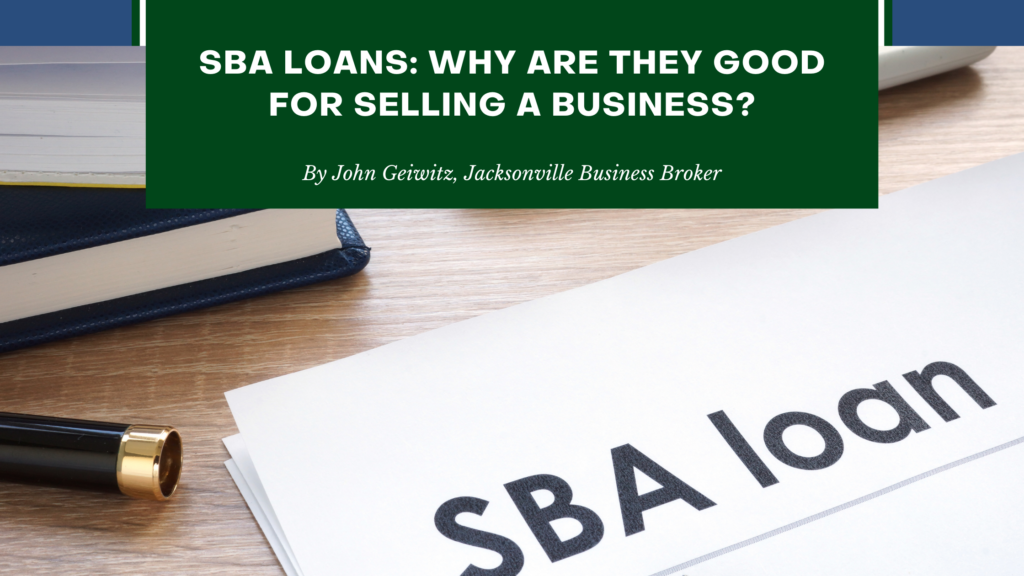
Small-business loans can certainly benefit the buyer (that’s basically a given), but did you know that there are also benefits to the seller? It’s true! But before we get into that, here’s a quick refresher on what exactly these loans entail.
What is an SBA Loan?
Backed by the U.S. Small Business Administration, SBA loans assist small businesses with getting essential funding to help with startup costs, real estate purchases, equipment, furniture, supplies, and more. Though issued by private lenders (often banks), they are backed by the government, which reduces lender risk and makes it easier for entrepreneurs to get a loan and launch their business. With flexible terms, low fees, and competitive rates, they can truly be one of the best ways to get that much-needed funding to acquire a company.
As with most loans, you first apply through a bank or credit union, but then that institution applies to the SBA for a loan guarantee, which means that if you default or are unable to pay it back, the government steps in and pays the lender the guaranteed amount. There are a few different types of SBA loans, including:
- 7(a) loans: The most common loan program, good for businesses with special requirements and can be used for working capital, purchasing supplies, and refinancing business debt. Up to $5 million.
- 504 loans: Good for purchasing or repairing long-term fixed assets such as land, equipment, and facilities. Up to $5.5 million.
- Microloan: The smallest program, which can help small businesses launch or expand. Up to $50,000.
Your lender can help determine loan eligibility and which type may be right for you — all of which is based on the purpose of the business, where it operates, and the character of ownership.
Why SBA Loans Are Good for the Seller
While the SBA loan program at its core was put in place to encourage and assist new entrepreneurs, it also provides some wonderful benefits to those looking to sell their business. Here’s why:
It helps you find the right buyer. The SBA loan process requires potential buyers to meet certain standards for loan approval, which keeps the seller from having to spend precious time working with unqualified buyers. This ensures that the buyer is both invested in and committed to the company.
The seller can carry a portion of the loan. Known as seller financing, the owner has the option to finance part of the company’s sale price. With this type of transaction, the seller acts as a bank and will receive interest payments and potential tax savings.
It’s a pretty simple and straightforward process. The SBA loan application process requires very little work or time from the seller, so they can focus on operating and transitioning the business. Not only that, but if the loan is approved, the borrower is responsible for any fees — not the seller.
The seller gets paid up front for all or most of the purchase price. If the buyer does qualify for an SBA loan, it’s instant cash in a seller’s pocket at closing.
The seller can continue to consult. Once the loan is approved and the business is sold, the seller can enter into a consulting agreement.
When it comes to selling your business, expert guidance is just a click away — contact the Jacksonville Business Broker today to learn more and get a free and confidential business valuation.


